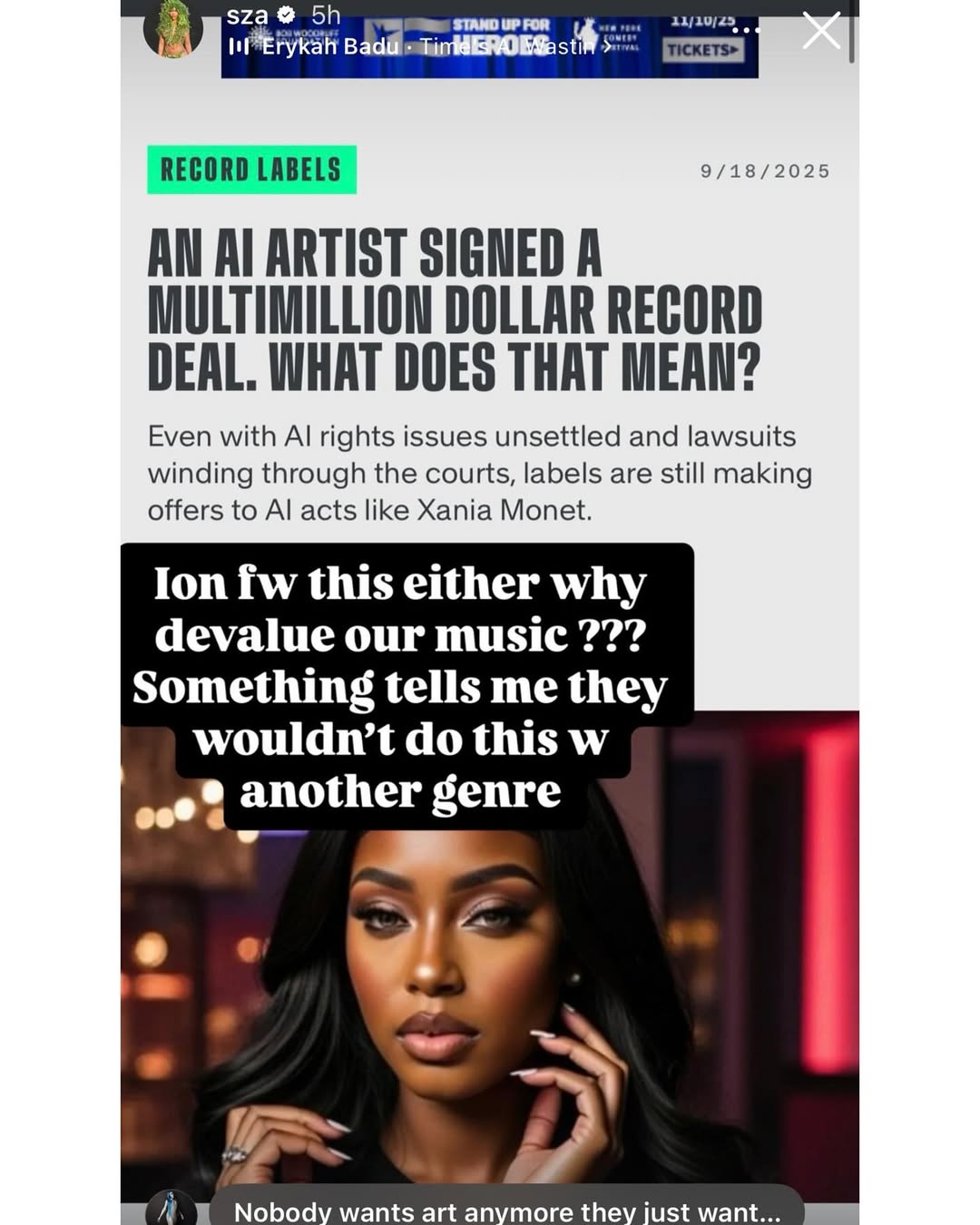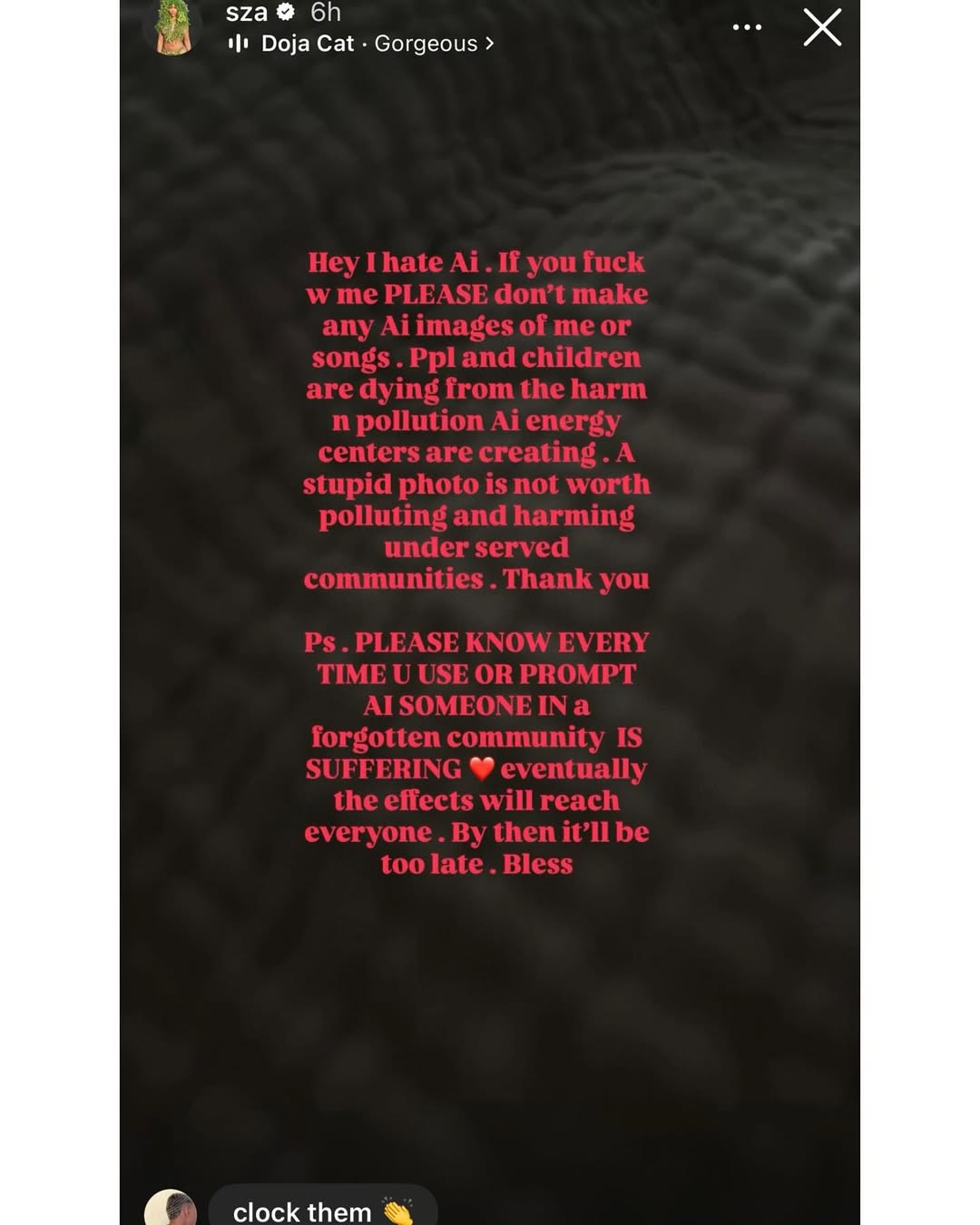The music industry’s latest signing isn’t a human at all. Xania Monet, an AI-generated R&B artist created through machine learning tools, just inked a $3 million record deal with Hallwood Media—and the move is already sparking backlash from real-life stars.
Xania’s silky vocals and moody aesthetics may give the impression of a fully virtual songwriter, but behind the curtain sits Telisha Jones, the creative mind penning Xania’s lyrics. Once Jones writes the words, she feeds them into an AI platform that generates the voice, melodies, and production to bring the project to life.
The signing has ignited an industry-wide debate, especially among artists who feel their craft is being cheapened by synthetic talent. Kehlani and SZA have both weighed in on social media, voicing concerns that AI-driven artists could:
-
Devalue music by prioritizing algorithm-friendly content over genuine human expression.
-
Exploit training data, since many AI platforms scrape existing songs to “learn” without crediting or compensating original artists.
-
Worsen environmental issues, citing the high energy costs associated with running large-scale AI systems.
Kehlani noted that while many may think AI is only used to cover songs, “AI can also make the entire f-ing song. It can sing the entire song. It can make the entire beat.”
She went on to declare that “Nothing and no one on Earth will ever be able to justify AI to me. Especially not AI in the creative arts.” “I’m sorry, I don’t respect it,” the “Folded” singer concluded.
“Kill Bill” singer SZA shared a screenshot of the news to her Instagram story with the caption “Ion fw this either why devalue our music ??? Something tells me they wouldn’t do this w another genre.”
The Grammy winner also raised alarm about the general use of AI, urging her fans to consider the environmental impacts before using it.
“I hate AI,” SZA wrote. “Please don’t make any AI images of me or songs. Ppl and children are dying from the harm n pollution AI energy centers are creating.”
CHECK OUT SZA’S POST:


Supporters of Xania Monet, meanwhile, argue that AI could expand artistic possibilities and give underrecognized songwriters like Jones a platform. Critics, though, say record labels are using tech as a shortcut, betting on avatars instead of nurturing real artists.
The conversation is quickly becoming bigger than just one deal. With deep-pocketed labels now signing AI “performers,” questions about ownership, authenticity, and sustainability in music are about to get a lot louder.
CHECK OUT THEIR FULL REACTION BELOW.














